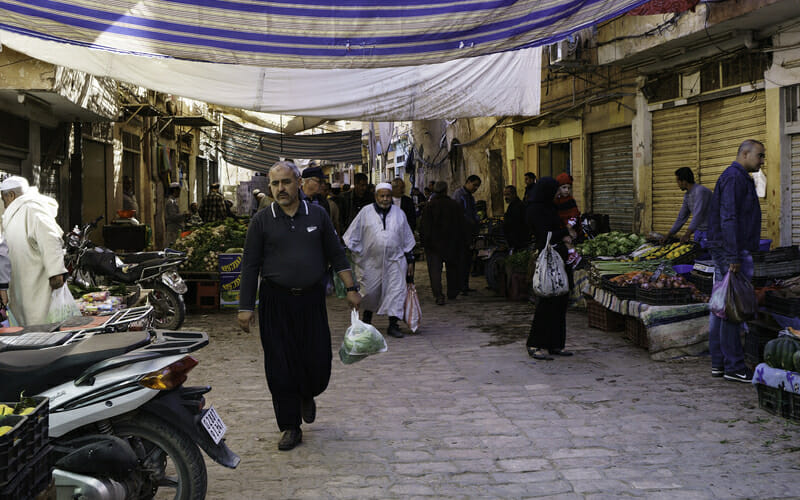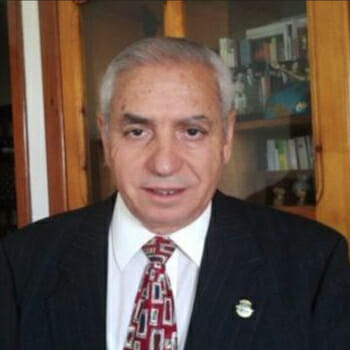
Algeria: The Game is Over
In the aftermath of the Arab Spring that some people are now calling the “Arab Winter” the MENA region has been defined by escalating conflict and failing states. Like a row of dominos, nation after nation has fallen into complete chaos. Syria, Libya, Iraq and now Yemen have followed this path, but where does the next domino fall? All eyes seem to be looking to Algeria, and the situation there seems to be a perfect storm waiting to break. So what exactly is that situation and why is a state that was barely touched by the Arab Spring about to collapse? And if it does collapse what will it look like then?
To answer all these questions, one must look at Algeria’s recent past to provide a sense of the country’s political environment and identify the forces that could cause Algeria’s regime to collapse and the ways it can be avoided. Lastly one must bring it all together to speculate on what the future of Algeria will look like.
For starters, Algeria is no stranger to violence. France’s brutal cultural war and dismal treatment of Algerians during the colonial period instilled a sense of violence in the hearts and minds of Algerians. This violence has a name — “revolutionary violence” — and is the idea that because of the violent acts committed by the French, violence done to achieve independence was not just permitted but necessary. The war for independence spared few. Both sides used brutal tactics and by the time the French fully pulled out, the trauma had left its mark on the nation’s psyche.
This psychological impact showed itself again in the early 1990s when democratically elected Islamist party FIS threatened to remove the military from power. The military responded once again with brutal violence and managed to consolidate their chokehold on political power by the end of the civil war in the year 2000 at the cost of thousands of lives (250,000 dead.)
Today, about 50 generals control the government of Algeria. They use terror and torture to subdue their rivals and generous handouts funded by hydrocarbon revenues to pacify the general population. The president of Algeria, Abdelaziz Bouteflika, is in very poor health and wasn’t even expected to live long enough to run in the last elections. If this sounds like an awful situation, brace yourself, because it is about to get worse.
Algeria relies on hydrocarbons for roughly 60% of government revenues and 95% of exports, and they started falling precipitously in 2014. By the end of last year, foreign reserves had dropped to an estimated $97 billion, less than half what they had been in 2014. While recent upticks in the oil price may postpone the problem, a crash seems inevitable, with the Revenue Regulation Fund, Algeria’s sovereign wealth fund, looking likely to run out of money completely within two years. As a rentier state, the robustness of Algeria’s coercive apparatus, and therein its ability to maintain control, is dependent on hydrocarbon revenue.
When the salaries of soldiers and the subsidized food and medicine evaporate, so will Bouteflika’s legitimacy, and the state will undoubtedly fail. Furthermore, Bouteflika may not live to see that moment, so it would be a new president, the first Algeria has seen since 1999, that would be in charge in this crisis. This is not to say that this disaster is totally unavoidable. The government of Algeria could make moves to prevent this catastrophe by looking to international organizations for aid.
However, there is no such thing as a free lunch, and in order for Algeria to receive funding it will first have to make changes, such as opening its political system. A rational government would make these changes, but those who rule Algeria got their power through unbelievable bloodshed, and it wouldn’t be surprising if they would rather watch their country be consumed in flames than relinquish the power they fought so hard to attain.
One solution is to radically boost hydrocarbon production to make up for the drop in prices. Algeria has already started looking into shale gas but this has just heightened tensions between the politically divided north and south, and is just prolonging the inevitable. The only internal solution left would be to radically change the structure of Algeria’s economy and diversify away from hydrocarbon rents. This is the long shot of all long shots though, and the unrest caused by a rapid shift in the economy could be enough to cause a revolution.
No matter which way you look at it Algeria seems to be headed towards disaster. When the sovereign fund runs out, the country will probably breakout in violence as Islamist groups seek to use the ensuing popular unrest to gain power. The government will undoubtedly hold on to power as long as possible using any means they have. Massive human rights violations will attract the attention of international powers and the situation will deteriorate.
Human Rights Watch has already provided a grim picture of human rights in Algeria as of 2017, particularly with regard to freedom of assembly.
Algeria will likely look a whole lot like its neighbor Libya, with the state divided into at least three sub states controlled by opposing forces. With no real hope for Algeria’s future, all anyone can do is prepare for the worst, and begin working on solutions to eventually pull the country up from the ashes of the impending civil war.

